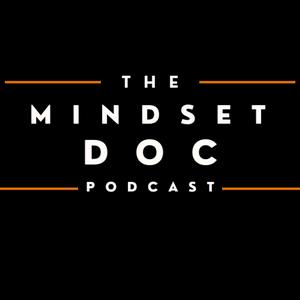The Mindset Shift You Need — From Longevity, Gut-Brain Health & Self-Responsibility
Send us a textWhy We Need a New Mindset in 2025The world keeps changing: information overload, climate anxiety, rising mental health awareness, and stressors that didn’t exist in quite the same way even a few years back.According to the Global Wellness Institute’s latest mental wellness initiative report, we’re seeing that mental health isn’t only about being “not depressed” — it’s about brain health, resilience, and prevention. Global Wellness InstituteWe also see rising research into how the environment — gut health, physical movement, mental stimuli — actually affects how our brains function over time. We need more than mindset pep talks; we need actionable, science-backed shifts.Key Trends & Mindset ShiftsHere are some of the big trends emerging and the mindset shifts you can adopt to ride these in a positive, proactive way:TrendWhat It Means for Mental WellnessShift in Mindset / PracticeLongevity + brain health | It’s not just about living longer, but keeping your brain sharp, resilient. Resistance training, physical activity, mindfulness together help slow cognitive decline. Global Wellness Institute | “I am investing now in the wellness of my future self.” Include strength/resistance training, movement routines, etc. Not just cardio or “general fitness”, but targeted for brain health.Gut-Brain Axis | More granular research shows certain gut bacteria impact mood, impulse control, anxiety. Global Wellness Institute | Mindset: what you eat matters for your mental state. More attention to diet, probiotics, perhaps experimenting with nutrition. See food as medicine, not just fuel.Self-Awareness & Self-Responsibility | With so many external tools (wearables, apps, monitoring), there’s a risk of outsourcing awareness. But real progress comes when you listen to yourself, not just data. Global Wellness Institute | Shift from being passive (“What does my device/activity tracker tell me?”) to active—“What is my body/mind telling me? What do I feel? What do I need?” Cultivating internal awareness.Social Mind & Connection | Loneliness is being understood as a serious wellness risk; social cognition, belonging, shared experiences help wellbeing. Global Wellness Institute+1 | Value connection not just as fun or luxury but as essential. Make space for community, real conversations, rituals of togetherness — even small ones.Environmental / Exposure Wellness | The external environment (pollution, microplastics, even social/media exposure) is increasingly linked to mental health outcomes. Global Wellness Institute | Become more intentional about what you let into your life — what you consume (information, food, physical environment). Also consider small changes (less plastic use, filtering water, reducing harmful e


